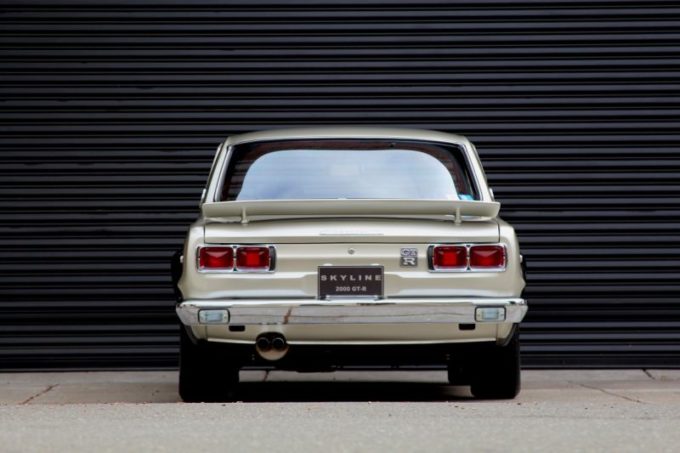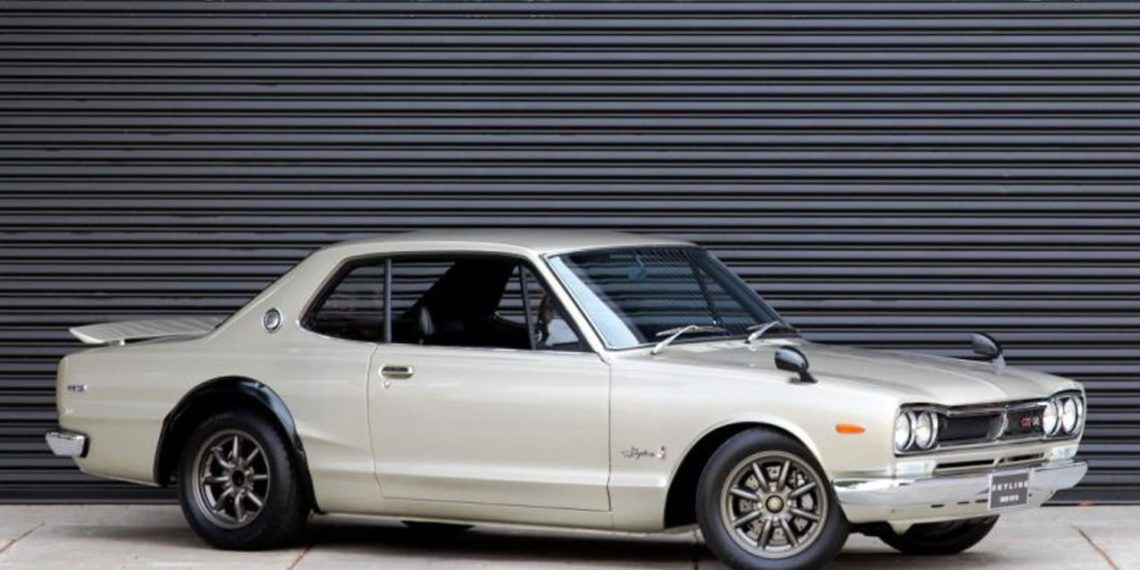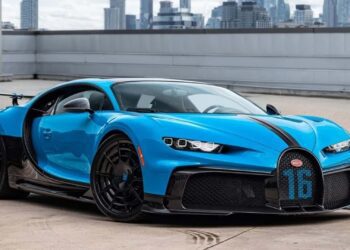Text from vehicle description:
Although the Hakosuka Skyline, particularly the racing-derived GT-R variant, exploded into the consciousness of American and European collectors relatively recently, the cars have always been deeply revered in Japan. The Skyline story dates back to 1957 when Prince Motor Company introduced what was for postwar Japan, a large and luxurious car with obviously American influenced styling. With 60hp or so, it was far from sporting, and it was not until 1964 when the car gained, in a very big way, serious sporting credibility.
In 1964, by combining a lengthened Skyline body with the larger Gloria’s 6-cylinder powerplant, the car proved itself at the Japanese Grand Prix sweeping 2nd through 6th behind a Porsche 904. The car continued on to be a successful race car, nearing 50 consecutive wins in the 18 months it was actively campaigned. Thus began a performance dynasty and a legendary nameplate which continues to this day.
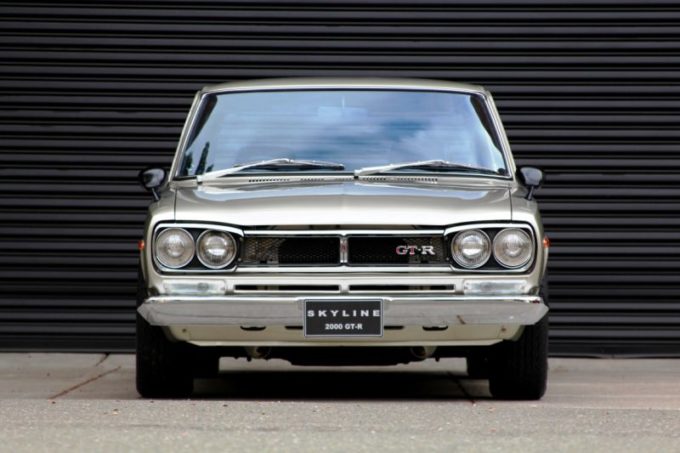
In 1966, Prince Motor Company merged with Nissan and the next generation Skyline, which was already in development, was badged as a Nissan when it appeared in 1968. Available with a variety of pedestrian powerplants, the most exotic variant was the GT-R version which was powered by the S20 engine. A dual overhead cam unit with 4 valves per cylinder and displacing 1989cc, the S20 was a sophisticated powerplant that made 160hp at 7,000 RPM, a remarkable specific output for a road car in the late 1960s. Available initially as a sedan, and then as a pillarless coupe from early 1971, the cars were very successful as race cars and set the stage for its briefly-lived successor, the Kenmeri GT-R (produced only until early 1973), and in finally, 16 years later, the rebirth of the GT-R badge in 1989 with the R32 generation Skyline.
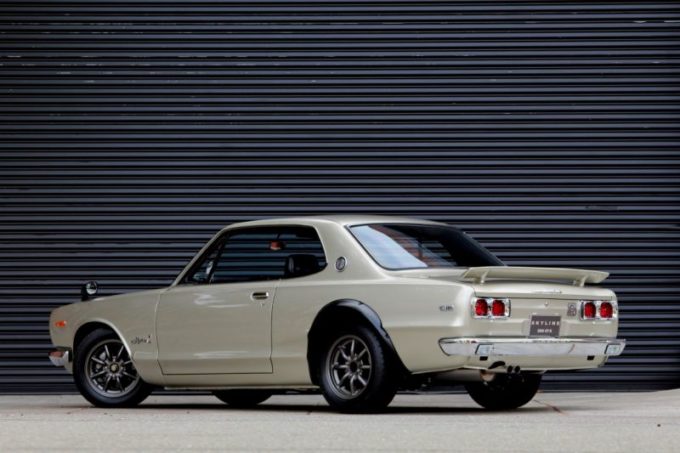
This particular 1972 Nissan Skyline GTR for sale is a beautifully restored example that was sourced in Yokohama in 2015 following an extensive search. Using original paint found on the car, it was carefully color matched in this striking color, which is predominantly silver with a gold cast to it, and occasionally some green hue as well. Virtually no metalwork was required during the restoration: a few spots in the rockers were addressed, but no other corrosion was found. The exterior was completely refinished and new weather stripping and emblems fitted. All systems were restored as necessary, both cosmetically and mechanically. The brakes, steering, and suspension were rebuilt, while engine and gearbox were found not to need any work beyond routine servicing. The original interior was cleaned and preserved aside from the dashboard and console, which were authentically restored.
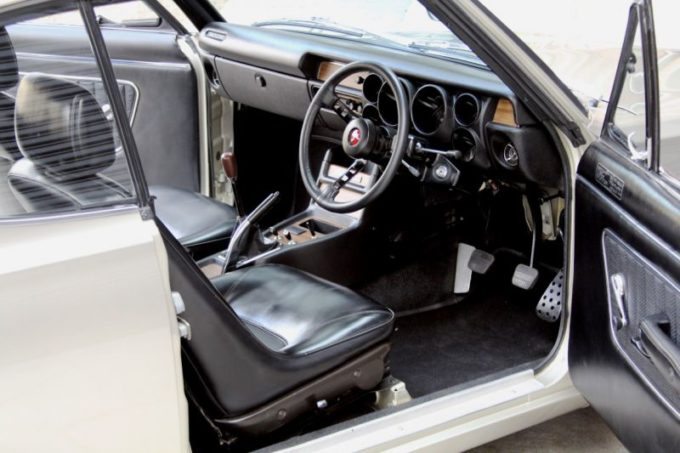
The car presents beautifully. The body is solid, crisp, and very straight. The paint was done to high standards and is virtually unmarked. Most of the chrome, including the bumpers and light surrounds, was redone. The side window trims were not redone but are in very good unrestored condition. The lights are excellent throughout, as is the glass. The outer headlamps are Cibié items and the inner ones are Koito while the wipers are twin-stalk Japanese made Trico items. The glass all bears Nissan etchings and the lenses are all like new, aside from the left reversing lamp which is cracked. The car sits on beautiful Watanabe alloy wheels.
The interior is in excellent shape. The condition is consistently crisp and near new throughout. The upholstery on the evocative fixed-back seats is virtually unmarked, which is impressive considering it was not replaced during the restoration. There is one small split on the back of the driver’s seat but it is otherwise difficult to fault. The lightweight floor covering and mats are in excellent shape, as are the door panels and side panels. The dashboard and console are in excellent as-new condition, and the gauges are also in excellent shape. The tachometer is an aftermarket item. The parcel shelf and headliner are also in excellent condition.
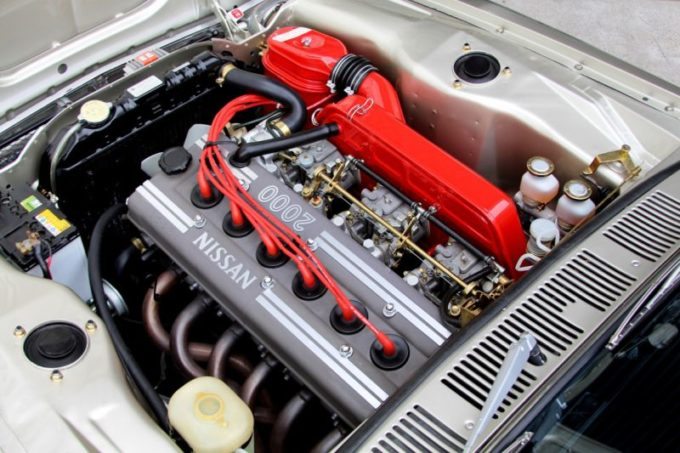
The engine compartment is stunning and would be ready to show with minimal preparation. Not only is the S20 powerplant an impressive and aesthetically beautiful engine, but nearly every aspect of this car’s engine compartment has been comprehensively restored to high standards. The inner fenders, firewall, and other painted components were refinished to the same high standards as the exterior, while the mechanical components are all in freshly restored condition. The cad plating was renewed and the triple Solex carburetors are nicely detailed and the decals have been renewed as well.
The trunk is also nicely restored. The fuel tank sits above the trunk floor which gives a purposeful competition-oriented appearance. A new trunk carpet has been fitted while the rest of the trunk panels are not upholstered, which shows the quality of the work and gives a purposeful and spare appearance to the trunk. The original jack including Nissan Motor carrying bag is present as well.
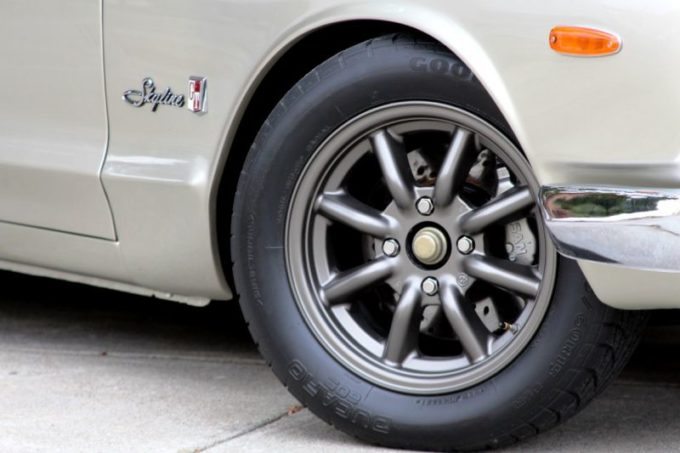
The car runs and drives well. The engine sounds fantastic and has tremendous throttle response to even the lightest application. It pulls well, giving the impression of a low reciprocating mass competition engine and indeed, the power peak of 7000rpm gives a strong indication of this. The motor is not, however, peaky. The car pulls smartly off the line, particularly thanks to the relatively short gearing. The transmission has a pleasantly slick yet robust feel with excellent synchromesh and well-defined gates. The brakes have little free play and initially seem heavy, particularly compared to the zingy throttle response, but they are quite effective, an interesting blend that is somewhat like an old 911. The steering is precise and a bit heavy at slow speeds, but is responsive and communicative. The chassis is competent and well-damped.
Perhaps because of the rarity of the GT-R in the United States, and its exotic specification, there is a significant sense of occasion associated with driving or even seeing it. This particular example is stunning: beautifully restored to high standards and in excellent driving condition as well, this is a very rare car anywhere in the world, let alone in the United States. For the diehard JDM enthusiast or the more European-oriented enthusiast seeking to diversify, this is one of the ultimate examples of the ultimate cars to do so with.
Please note that this car cannot be sold for use in California.
Sell My Nissan GT-R: Get a Cash Offer
